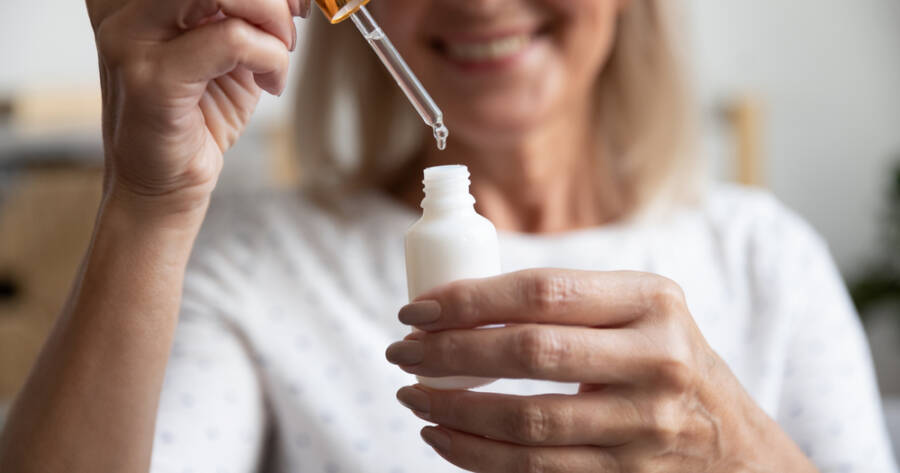As people age, their skin naturally undergoes changes that can leave them looking older than they feel. Wrinkles, fine lines, and loss of skin elasticity can make individuals wish for a way to turn back time. Thankfully, science has made significant strides in developing ingredients that can help slow down these signs of aging. Explore the anti-aging ingredients that have been scientifically proven to help rejuvenate your skin and restore a youthful glow.
Retinol: The Gold Standard for Skin Renewal
Retinol, a derivative of vitamin A, is widely regarded as one of the most effective ingredients for anti-aging. It works by stimulating the production of new skin cells, which helps reduce the appearance of fine lines and wrinkles. Retinol also increases collagen production, leading to firmer and more youthful-looking skin.
One of the key benefits of retinol is its ability to speed up skin cell turnover. As we age, this process naturally slows down, leading to dull, uneven skin. By promoting faster cell renewal, retinol helps reveal fresher, smoother skin. Additionally, it can improve the texture of your skin and reduce the appearance of age spots and hyperpigmentation.
While retinol is a powerful ingredient, it can be irritating to some skin types, especially in higher concentrations. It’s best to start with a lower concentration and gradually increase it over time to avoid dryness or peeling. Be sure to wear sunscreen daily, as retinol can increase your skin’s sensitivity to the sun.
Hyaluronic Acid: A Hydration Hero
As we age, our skin loses its ability to retain moisture, leading to dryness and the development of fine lines. Hyaluronic acid is a naturally occurring substance in the body that helps retain moisture in the skin. It has the ability to hold up to 1,000 times its weight in water, making it one of the most powerful hydrating ingredients available.
By attracting moisture to the skin’s surface, hyaluronic acid helps plump up the skin and smooth out fine lines. It also helps maintain the skin’s natural barrier, keeping it soft, smooth, and well-hydrated. Regular use of hyaluronic acid can improve skin elasticity and reduce the appearance of wrinkles, giving the skin a youthful, dewy glow.
Hyaluronic acid is gentle on the skin and suitable for most skin types. Whether you have oily, dry, or sensitive skin, this ingredient can help restore moisture without clogging pores or causing irritation.
Vitamin C: Brighten Your Skin and Fight Free Radicals
Vitamin C is a powerful antioxidant that has been shown to provide numerous benefits for aging skin. One of its main roles in skincare is to protect the skin from free radicals, which are unstable molecules that can cause premature aging by damaging skin cells. By neutralizing free radicals, vitamin C helps prevent signs of aging, such as wrinkles, sagging, and discoloration.
Vitamin C also plays a key role in collagen synthesis, which is essential for maintaining skin firmness and elasticity. As we age, collagen production naturally decreases, leading to sagging skin. Vitamin C helps stimulate collagen production, promoting firmer, smoother skin.
In addition to its anti-aging benefits, vitamin C can also brighten the complexion and reduce the appearance of dark spots and hyperpigmentation. Regular use of vitamin C can result in a more even skin tone and a radiant, youthful appearance.
Peptides: Boost Collagen and Skin Firmness
Peptides are short chains of amino acids that serve as the building blocks of proteins like collagen and elastin, both of which are crucial for maintaining youthful, firm skin. As we age, the production of collagen and elastin naturally declines, leading to wrinkles, sagging, and a loss of skin elasticity. Peptides can help counteract this process by stimulating collagen production and improving skin structure.
Peptides work by signaling the skin to repair itself and produce more collagen. As a result, they can help reduce the appearance of fine lines, improve skin tone, and enhance skin elasticity. By strengthening the skin’s structure, peptides make the skin look firmer and more youthful.
In addition to their collagen-boosting benefits, peptides can also help improve the skin’s overall health and resilience. They support the skin barrier, making it less prone to environmental damage and irritation.
Niacinamide: Calm and Rejuvenate Your Skin
Niacinamide, also known as vitamin B3, is a versatile ingredient that offers a wide range of anti-aging benefits. It helps improve skin texture by boosting collagen production and promoting the growth of new skin cells. Niacinamide is also known for its ability to reduce inflammation and redness, making it particularly beneficial for sensitive or irritated skin.
One of the standout features of niacinamide is its ability to improve the skin’s barrier function. A strong skin barrier helps retain moisture and protect against environmental damage, both of which are important for maintaining youthful-looking skin. Niacinamide also helps fade dark spots and hyperpigmentation, leaving the skin with a more even tone.
In addition to its anti-aging properties, niacinamide can help reduce the appearance of enlarged pores and control excess oil production. This makes it an excellent ingredient for both aging and acne-prone skin.
Embrace a Skincare Routine That Works for You
While aging is a natural part of life, it doesn’t mean we have to accept the visible signs of aging without a fight. By incorporating proven anti-aging ingredients like retinol, hyaluronic acid, vitamin C, peptides, and niacinamide into your skincare routine, you can help preserve your skin’s youthful appearance for years to come.
However, it’s important to remember that skincare is highly individual, and what works for one person may not work for another. It’s essential to find products that suit your skin type and concerns, and don’t forget the importance of a healthy lifestyle, including good nutrition, hydration, and sun protection.

